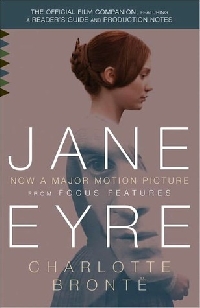SBBC: Jane Eyre by Charlotte Bronte
Launch gallery slideshow

| Group: | Swap-bot Book Club |
| Swap Coordinator: | bookwyrmm (contact) |
| Swap categories: | Books Letters & Writing |
| Number of people in swap: | 3 |
| Location: | International |
| Type: | Type 2: Flat mail |
| Last day to signup/drop: | April 1, 2011 |
| Date items must be sent by: | April 30, 2011 |
| Number of swap partners: | 1 |
| Description: | |
|
Title: Jane Eyre by Charlotte Bronte Genre: Classic Literature Summary: Charlotte Bronte's impassioned novel is the love story of Jane Eyre, a plain yet spirited governess, and her arrogant, brooding Mr. Rochester. Published in 1847, under the pseudonym of Currer Bell, the book heralded a new kind of heroine--one whose virtuous integrity, keen intellect and tireless perseverance broke through class barriers to win equal stature with the man she loved. Hailed by William Makepeace Thackeray as "the masterwork of great genius," Jane Eyre is still regarded, over a century later, as one of the finest novels in English literature. Swap details: I've set the sign-up date for about two weeks from now to give folks time to pick up a copy and read it a bit (if you wish) before you decide to join this swap, but you can start reading whenever you'd like. For this swap, you can either hand-write or type and send (via snail mail) the answers to your questions. Please use your best judgment. If it elicits a yes or no, please answer it with at least one complete sentence. I would say most questions should be answered with a minimum of a few sentences. The purpose is to create a dialog, a discussion about the book - with your assigned partner, perhaps you will be in touch via e-mail, or private message or through the forum as part of a larger group, or you just want to see what someone else thinks about what we've read. If you only answer yes or no, it doesn't really leave room much room for a discussion. Category 1 (answer all 6 of these questions for your partner)
Category 2 Please pick 6 of the following questions (below) to answer with the above questions. These questions are taken directly from the discussion guide from Penguin USA. Please be honest in your answer and use constructive criticism. You can choose to answer more questions below, but you must choose a minimum of 6. If there is something not asked in the questions that you'd like to share, please feel free to discuss that too.
| |
Discussion
Leave a Comment
You must be logged in to leave a comment. Click here to log in.
- Info:
- Home
- |
- About
- |
- Forum Rules
- |
- Terms of Use
- |
- Press
- |
- Advertising
- |
- Blog
- |
- Graphics & Stuff
- Help:
- New User Info
- |
- FAQ
- |
- Group Info
- |
- Glossary
- |
- Forums
- |
- |
- Contact Admin

